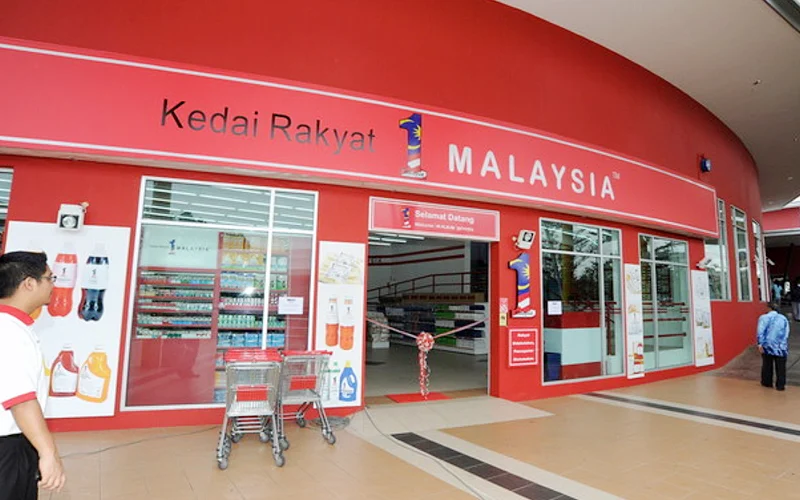
PETALING JAYA: A proposal to revive Kedai Rakyat 1Malaysia (KR1M) sundry shops introduced during the Najib Razak-era has been given the thumbs down by an economist and a consumer group.
Nazari Ismail of Universiti Malaya said such a venture was pointless as the government would have to expend significant sums to subsidise goods sold at these shops.
“The government has a huge debt at the moment and simply cannot afford this programme, unless it wants to see its debt soar to a higher level,” he told FMT.
The proposal also received a negative response from the Federation of Malaysian Consumers Associations (Fomca), which said KR1M shops had compromised on the quality of products to sell at cheaper prices.
However, economist Barjoyai Bardai of Universiti Tun Abdul Razak suggested that the venture could work if done online. He said the government could take a leaf from US online retailer Amazon to create a virtual store for the purpose.
“If it is run on a commercial basis but with support from the government, then it could be selling goods much cheaper than the market price,” he said.
The KR1M project was launched in 2011 by the Najib Razak government to provide cheaper groceries to lower income households.
Last week, Umno Youth chief Dr Akmal Saleh urged the government to open retail outlets similar to the KR1M shops. He said many now realised that the KR1M shops were the ideal choice for Malaysians.
However, Nazari said a redistribution of subsidies could affect existing ones, especially the fuel subsidy, which may cause fuel prices to surge.
He said KR1M shops had suffered massive losses as they were not adequately subsidised.
On Thursday, deputy domestic trade and cost of living minister Fuziah Salleh said the government was studying the proposal, but added that it could be more sustainable to expand the Rahmah sales initiative by making cooperative shops strategic partners.
“We have to ensure it is sustainable, can last a long time, and does not fail midway,” she said.
Mydin hypermarket boss Ameer Ali Mydin said in 2017 that the chain suffered losses of RM100 million by taking part in the KR1M project.
Fomca treasurer Nur Asyikin Aminuddin said comparative tests by Fomca on some KR1M products found that they did not follow health standards for food additives.
“The KR1M stores were meant for the needy and the B40 group because their prices were considerably lower than others, but it isn’t appropriate to sell such low quality products to them. Can we say that (the initiative) was successful? We don’t think so because it jeopardises the health of consumers,” she said.
Nur Asyikin also said the closure of the KR1M stores in 2017 did not have any significant impact on consumers. - FMT



No comments:
Post a Comment
Note: Only a member of this blog may post a comment.